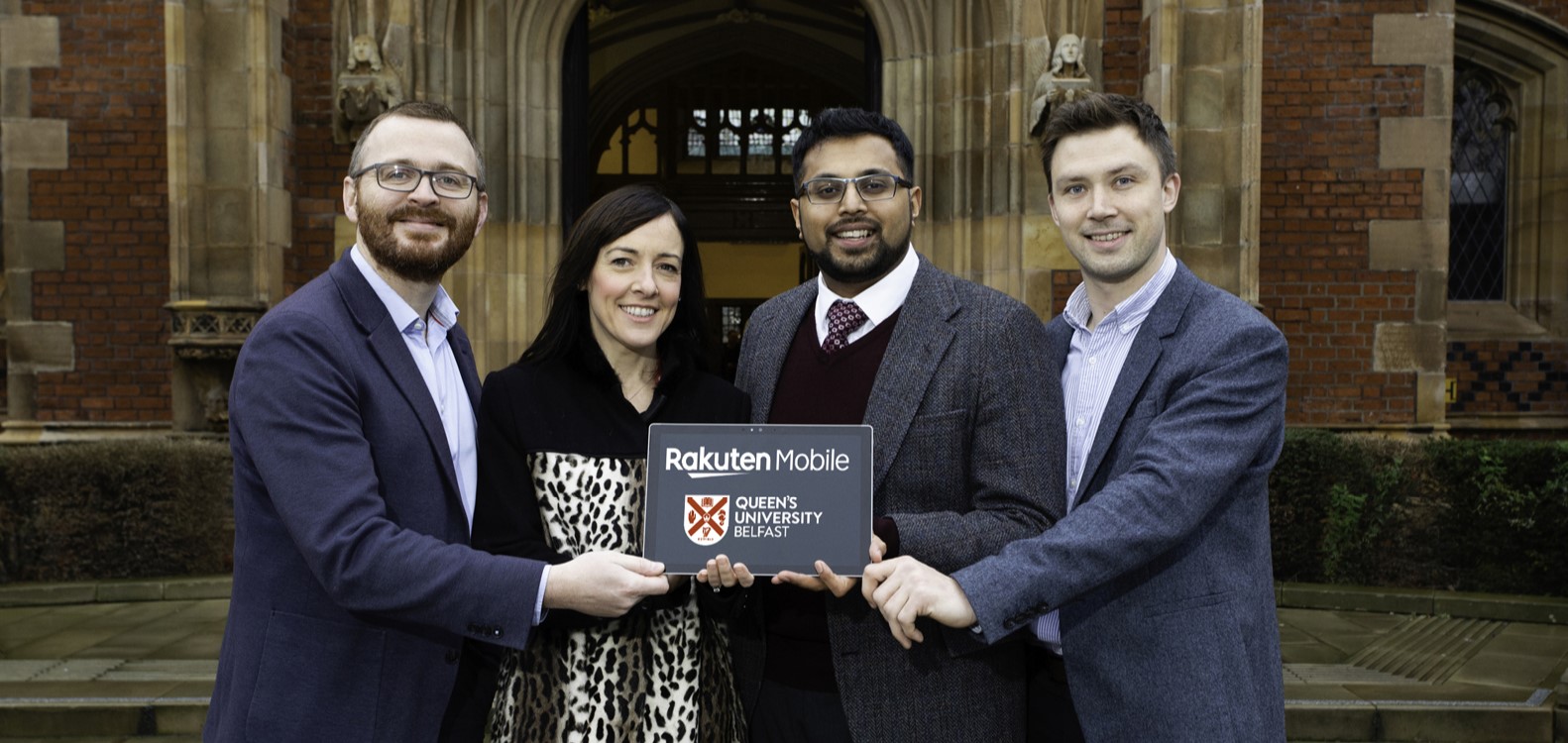QUEEN’S AND RAKUTEN MOBILE TO SET UP EDGE COMPUTING HUB IN BELFAST 
10 January 2020
Internet giant Rakuten Mobile, Japan’s newest mobile network operator, is collaborating with Queen’s to set up an edge computing hub, which is to be based in Belfast.
Edge computing, which brings computation and data storage closer to the location where it is needed thereby improving response times and saving bandwidth, will impact every internet user in the world as it becomes the way the internet works behind the scenes.
Offering a faster solution for smart devices, edge computing is a next generation model that will revolutionise the way society uses the internet.
Dr Blesson Varghese, Lecturer in the School of Electronics, Electrical Engineering and Computer Science and a Fellow of the Institute of Electronics, Communications and Information Technology (ECIT) at Queen’s, is leading the project. He explained: “Currently, processing of all data we generate usually happens on geographically distant clouds.
“As billions of devices are getting connected to the internet, we need more sustainable and scalable architectures for computing. They must not solely rely on distant centralised clouds.
“Edge computing will bring certain services of applications closer to the users on the edge of the network. This will make applications more responsive and reduce bandwidth demand in the network core.”
The key mission of the project is to make edge computing a reality. At the hub, a team of PhD students and a post-doctoral researcher will research and develop the underlying approaches for safely delivering edge services, efficiently managing the end-to-end activities of an application, and continuously monitoring the infrastructure to allow an application to seamlessly adapt to changes.
Dr Pierre Imai, Head of Research and Innovation at Rakuten Mobile, said: “Rakuten Mobile aims to be the most technologically advanced telecommunications provider in the world. To achieve this, we have established a new lab to make a truly autonomous network a reality.
“Through our collaboration with Queen’s University Belfast, we have the opportunity to work with leading researchers in the edge computing field, and the results should allow us to provide a better service and a greater level of convenience to our customers.”
American business magazine Forbes has predicted that by 2025 more than 80 billion devices, including smartphones, will be connected to the internet and 180 trillion gigabytes of data will be generated. Eventually the cloud will not be able to cope with the billions of devices seeking data processing.
Queen’s researchers have been working on a solution to this problem using ‘edge computing’ technology.
Dr Varghese added: “In a society where we rely heavily on gadgets and apps for everyday activities, edge computing is vital if we are to ensure the internet’s future efficiency.
“This academic and industry collaboration will allow Queen’s and Rakuten Mobile to develop cutting-edge research and lead the area.”
Rakuten Inc. has more than one billion customers worldwide and offers a variety of internet and financial services in almost 200 countries.The Japanese firm set up a fintech software development centre in Northern Ireland three years ago, which included the creation of more than a dozen jobs.
Media enquiries to Emma Gallagher at Queen’s University Communications Office, telephone: +44 (0)28 9097 3087.
Pictured at Queen's are (L-R): Stephen McCabe, the University's Business Alliance Manager; Professor Karen Rafferty, Head of the School of Electronics, Electrical Engineering and Computer Science; Dr Blesson Varghese, and Stuart Campbell, Business Development Manager at the Centre for Data Science and Scalable Computing at ECIT.
Back to Main News
Top of Page